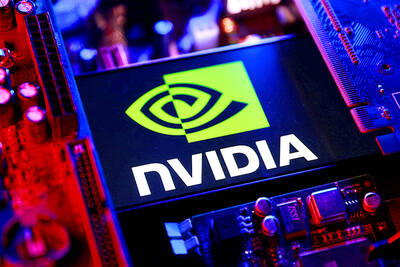Acer Inc (
Acer hopes to become a worldwide powerhouse in information technology services, software and sales of its brand-name products, including personal computers, notebook PCs, personal digital assistants and other computer-related products.
"Acer operations have just become too big and too complex," chairman Stan Shih (
The company also manufactures personal computers and notebook PCs for multinationals such as International Business Machines Corp (IBM). Acer products compete with its own customers, often creating friction.
In response, Acer has separated the contract manufacturing arm of the company into a separate business unit called Wistron. Acer plans to sell off over half its stake in Wistron this year. It plans to lower its total holding in Wistron to around 30 percent by the end of 2003.
Acer has already shifted some notebook-PC orders from Wistron to Compal Electronics Inc (
The company expects sales to reach NT$101 billion this year, up by around 30 percent year on year and putting it in the same league as other top contract manufacturers in Taiwan, such as Quanta Computer Inc (
Wistron expects that new orders from companies such as Dell Computer Corp (for computer parts) and Microsoft Inc (for Xbox game consoles) will replace orders that formerly came from Acer.
Including subsidiary companies, executives at Wistron said the group could see sales as high as NT$120 billion to NT$130 billion. AOpen Inc, Wistron Newave Corp, Wistron Nexus Inc, Anextek Global Inc, Wistron Software Corp (宏創) and Playcoo Corp are all members of the Wistron group of companies.
Last year, Wistron had net sales of NT$74.8 billion (US$2.2 billion), while the Wistron Group had combined sales of NT$96 billion, according to the company.

POWERING UP: PSUs for AI servers made up about 50% of Delta’s total server PSU revenue during the first three quarters of last year, the company said Power supply and electronic components maker Delta Electronics Inc (台達電) reported record-high revenue of NT$161.61 billion (US$5.11 billion) for last quarter and said it remains positive about this quarter. Last quarter’s figure was up 7.6 percent from the previous quarter and 41.51 percent higher than a year earlier, and largely in line with Yuanta Securities Investment Consulting Co’s (元大投顧) forecast of NT$160 billion. Delta’s annual revenue last year rose 31.76 percent year-on-year to NT$554.89 billion, also a record high for the company. Its strong performance reflected continued demand for high-performance power solutions and advanced liquid-cooling products used in artificial intelligence (AI) data centers,

SIZE MATTERS: TSMC started phasing out 8-inch wafer production last year, while Samsung is more aggressively retiring 8-inch capacity, TrendForce said Chipmakers are expected to raise prices of 8-inch wafers by up to 20 percent this year on concern over supply constraints as major contract chipmakers Taiwan Semiconductor Manufacturing Co (TSMC, 台積電) and Samsung Electronics Co gradually retire less advanced wafer capacity, TrendForce Corp (集邦科技) said yesterday. It is the first significant across-the-board price hike since a global semiconductor correction in 2023, the Taipei-based market researcher said in a report. Global 8-inch wafer capacity slid 0.3 percent year-on-year last year, although 8-inch wafer prices still hovered at relatively stable levels throughout the year, TrendForce said. The downward trend is expected to continue this year,

A proposed billionaires’ tax in California has ignited a political uproar in Silicon Valley, with tech titans threatening to leave the state while California Governor Gavin Newsom of the Democratic Party maneuvers to defeat a levy that he fears would lead to an exodus of wealth. A technology mecca, California has more billionaires than any other US state — a few hundred, by some estimates. About half its personal income tax revenue, a financial backbone in the nearly US$350 billion budget, comes from the top 1 percent of earners. A large healthcare union is attempting to place a proposal before

‘BASICALLY A BAN’: Sources said the wording governing H200 imports from officials was severe, but added that the regulations might change if the situation evolves Chinese customs authorities told customs agents this week that Nvidia Corp’s H200 artificial intelligence (AI) chips are not permitted to enter China, three people briefed on the matter said. Chinese government officials also summoned domestic technology companies to meetings on Tuesday, at which they were explicitly instructed not to purchase the chips unless necessary, two of the people and a third source said. “The wording from the officials is so severe that it is basically a ban for now, though this might change in the future should things evolve,” one of the people said. The H200, Nvidia’s second-most powerful AI chip, is one